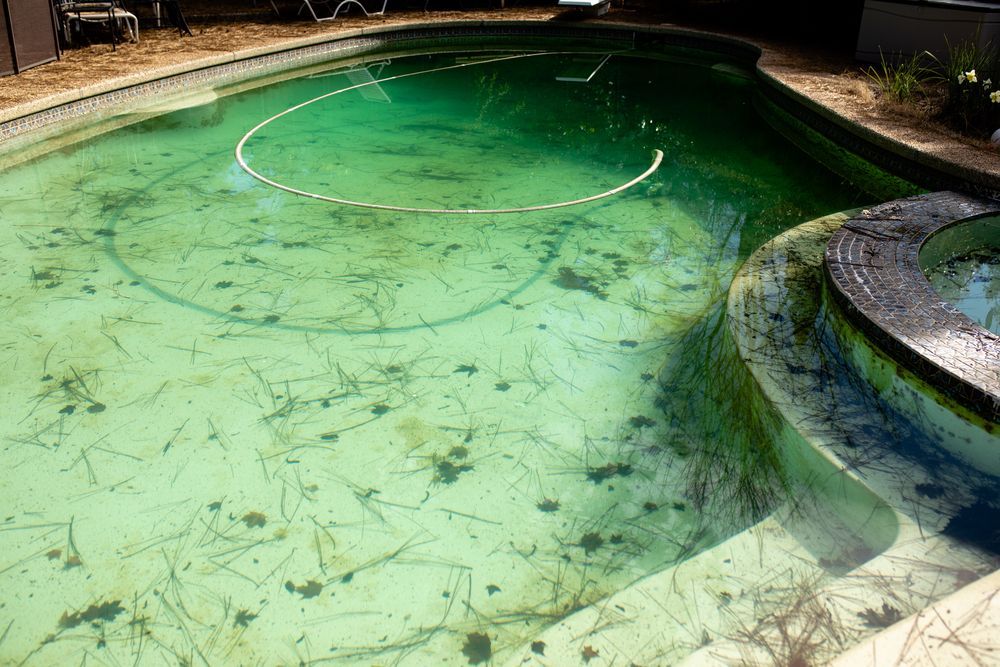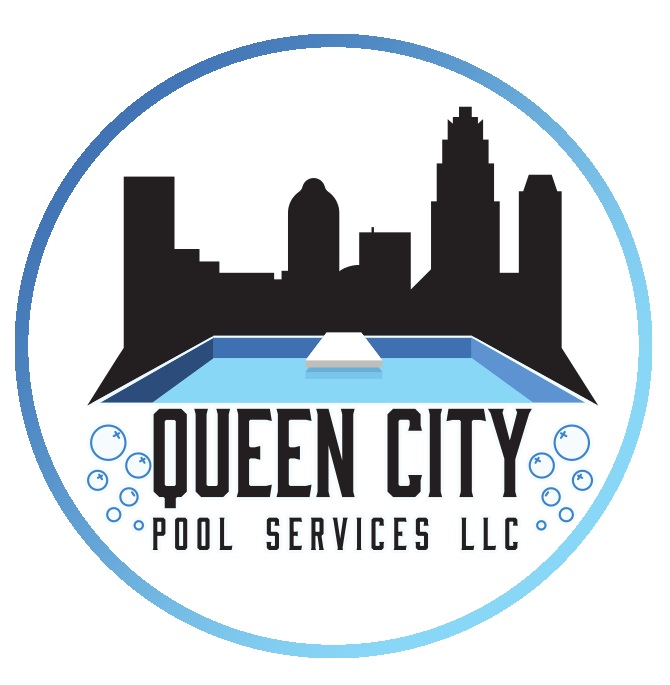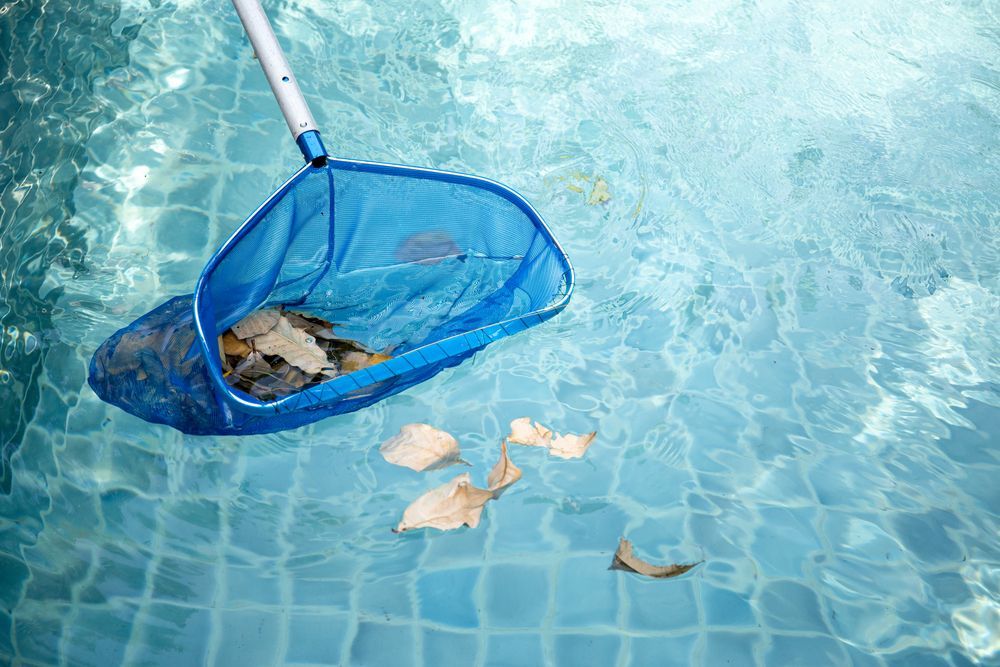How To Clean Algae From Your Pool

Algae growth in pools can turn a vibrant backyard oasis into a murky disappointment. Learning how to clean algae from pool is essential for maintaining a healthy and inviting swimming area. Algae, a plant-like organism that thrives in water, can create a slippery surface on your pool walls and floor, and can significantly reduce water quality. This guide provides a comprehensive approach to identifying, treating, and preventing algae in your pool.
Understanding Algae and Its Types
Before you tackle the issue, understanding the different types of algae that can invade your pool is crucial. Algae can manifest in a variety of colors, each requiring a specific approach for effective removal.
- Green Algae: The most common type, green algae can quickly turn the pool water into a murky green swamp if not addressed promptly.
- Black Algae: This type is particularly stubborn, forming protective layers over itself and adhering strongly to pool surfaces.
- Yellow or Mustard Algae: Often mistaken for sand or pollen because of its color, yellow algae is chlorine-resistant and can be challenging to eliminate.
- Pink Algae: Not true algae but a bacteria, pink algae forms in corners and crevices, presenting as a slimy substance.
Initial Steps for Cleaning Your Pool
The first step in combating algae is to remove as much of it as possible before treating the water chemically. This involves a few preparatory steps:
- Brushing the Pool: Use a stiff pool brush to scrub the walls, floor, and steps of your pool. Focus on areas with visible algae growth, as physical removal is a critical first step in the cleaning process.
- Vacuuming the Pool: After brushing, vacuum the pool thoroughly to remove the algae dislodged by brushing. For severe algae infestations, vacuuming directly to waste is recommended to prevent the algae from cycling back into the pool through the filter.
Chemical Treatment
Once you've physically removed as many algae as possible, it's time to treat the water with chemicals to kill any remaining algae and prevent future growth.
- Balancing Pool Chemistry: Ensure your pool's pH, alkalinity, and calcium hardness are within the ideal ranges. Algae thrive in unbalanced water, so keeping your water chemistry in check is a preventive measure against algae blooms.
- Shock Treatment: Shocking your pool is a critical step in killing algae. Use a chlorine-based shock product and follow the manufacturer's instructions for the recommended dosage. For severe algae outbreaks, you may need to shock the pool multiple times.
- Algaecide Application: After shocking the pool, apply an algaecide designed to kill the specific type of algae you're dealing with. Be sure to select an algaecide compatible with your pool's water type and filtration system.
Preventing Future Algae Growth
Preventing algae from returning is just as important as removing it. Here are some strategies to keep your pool algae-free:
- Regular Maintenance: Regularly brush and vacuum your pool, and keep your filter system running efficiently. Clean or backwash your filter regularly to ensure it's capturing debris and algae spores effectively.
- Proper Water Circulation: Poor water circulation can create dead spots where algae grow. Ensure your pool's pump and filter system is adequate for your pool's volume and that return jets are positioned to optimize water movement.
- Maintain Chemical Balance: Regularly test and adjust your pool's water chemistry. Imbalances in pH, alkalinity, and sanitizer levels can promote algae growth.
- Use a Pool Cover: When not in use, covering your pool can significantly reduce the amount of sunlight that algae require to grow. It also keeps out debris that can bring in algae spores.
Understanding how to clean algae from pool requires a multifaceted approach that includes physical cleaning, chemical treatment, and ongoing prevention strategies. By following these guidelines, you can ensure your pool remains clear, healthy, and inviting for everyone to enjoy.
Minimizing Nutrients in Pool Water
Algae feed on nutrients like phosphates and nitrates, which can enter your pool from various sources, including lawn fertilizers, rainwater, and even swimmer waste. Minimizing these nutrients can significantly reduce algae growth.
- Phosphate Removers: Using a phosphate remover can be an effective way to reduce algae's food source. These products bind to the phosphates in the water, making them large enough to be filtered out.
- Regular Water Testing: Test your pool water regularly for phosphates and adjust your maintenance routine as necessary. Keeping nutrient levels low deprives algae of its primary food source.
Enhancing Filtration and Circulation
Your pool's filtration and circulation systems are vital in preventing algae growth. A well-maintained system removes algae spores from the water and ensures that chemicals are evenly distributed throughout the pool.
- Upgrade Your Filter: Consider upgrading to a more efficient filter if yours is outdated or frequently requires maintenance. Cartridge filters and diatomaceous earth (DE) filters offer superior filtration compared to standard sand filters.
- Increase Circulation Time: Running your pump and filter system longer each day can improve water circulation and filtration. During peak swimming season or hot weather, it may be necessary to run the system 24 hours a day to prevent algae growth.
- Strategic Return Jet Placement: Adjust the angle of your pool's return jets to improve water circulation. Properly angled jets can prevent dead spots where algae might grow.
Using Algaecides Wisely
While algaecides are an important tool in your algae-fighting arsenal, they should be used judiciously and as part of a broader pool maintenance strategy.
- Selective Use: Reserve algaecides for visible algae outbreaks or as a preventive measure after heavy pool use, extreme weather, or when you can't maintain the pool for an extended period.
- Read Labels Carefully: Not all algaecides are created equal. Some are formulated specifically for certain types of algae. Use the product that's best suited for your pool's condition, and always follow the manufacturer's instructions.
Maintaining a Clean Pool Environment
A clean pool environment is less inviting to algae. Regular cleaning and maintenance go a long way in preventing algae growth.
- Remove Debris: Skim your pool daily to remove leaves, insects, and other debris. Decaying organic matter can release nutrients into the pool, encouraging algae growth.
- Clean Pool Surroundings: Keep the deck and surrounding areas clean. Algae spores can be blown into the pool from nearby garden plants, trees, and even the air.
Advanced Algae Prevention Techniques
For those looking to go the extra mile in their algae prevention efforts, consider the following advanced techniques:
- UV Pool Systems: Ultraviolet (UV) pool sanitizing systems can destroy algae cells and other pathogens in the water, reducing the need for high chemical levels.
- Ozone Generators: Similar to UV systems, ozone generators can kill algae and bacteria, providing an additional layer of water treatment that can reduce the reliance on traditional chemicals.
- Robotic Pool Cleaners: These automated devices can help keep your pool clean on a daily basis, reducing the workload on your filter system and preventing the accumulation of algae-friendly debris.
Monitoring and Adjusting Pool Chemistry
Keeping your pool chemistry within the recommended ranges is crucial for preventing algae and ensuring the effectiveness of your cleaning and treatment efforts.
- Frequent Testing: During the swimming season, test your pool water at least twice a week. Pay special attention to sanitizer levels, pH, and alkalinity.
- Adjusting Chemicals: Be prepared to adjust your pool's chemical balance after heavy use, rainfall, or topping off the pool with fresh water. Even small changes in water chemistry can have a significant impact on algae growth.
Engaging Professional Pool Services
Sometimes, despite your best efforts, algae can take hold in your pool. In such cases, or if you're unsure of the best course of action, hiring a professional pool service can be a wise decision.
- Professional Assessment: A pool professional can provide a thorough assessment of your pool's condition and recommend a customized treatment plan.
- Advanced Treatments: Professionals have access to commercial-grade chemicals and equipment that may be more effective than consumer products.
By adopting a comprehensive approach to pool maintenance that includes understanding algae types, enhancing filtration and circulation, using algaecides appropriately, maintaining a clean environment, employing advanced prevention techniques, monitoring pool chemistry, and considering professional services when necessary, you can significantly reduce the likelihood of algae taking over your pool.
Seasonal Pool Care for Algae Prevention
As the seasons change, so do the needs of your pool, especially when it comes to preventing algae growth. In warmer months, algae can proliferate rapidly due to increased sunlight and higher temperatures. Conversely, during the cooler months, neglect can lead to unwelcome surprises come spring.
Spring Opening
Starting the pool season with a thorough cleaning and water balance can set the tone for a low-maintenance summer. Ensure that you shock the pool and use an algaecide as part of your opening routine. This initial treatment can eliminate any algae spores that survived the winter.
Summer Vigilance
The battle against algae is most intense during the summer. Increased use, higher temperatures, and more frequent storms introduce additional nutrients and debris to your pool, creating ideal conditions for algae. Consistent water testing and adjustment, along with diligent cleaning, are your best defenses. Consider adding a mid-summer algaecide treatment to your maintenance schedule, especially if you frequently host pool parties or if your area experiences a heatwave.
Autumn Preparation
As the leaves begin to fall, keeping them out of your pool becomes a primary concern. Decomposing leaves can quickly turn your pool into a nutrient-rich environment for algae. Regular skimming and the use of a pool cover can mitigate this issue. Additionally, gradually reducing the water temperature, if your pool is heated, can slow algae growth as you prepare for the winter months.
Winterizing Your Pool
Properly winterizing your pool is crucial for preventing algae growth during the off-season. A thorough cleaning, balanced chemicals, and a strong winter algaecide treatment can keep the water clear until spring. Ensure your pool cover is secure and free of standing water or debris, as these can seep into the pool, bringing algae spores with them.
Innovative Algae Prevention Solutions
Exploring new technologies and solutions can offer additional layers of protection against algae. These innovative approaches can complement traditional methods, providing you with a more robust defense.
Ionization Systems
Ionization systems release copper and silver ions into the pool water, creating an environment that's inhospitable to algae. These systems can be particularly effective in combination with a minimal amount of chlorine, reducing the overall chemical load in your pool.
Enzyme Treatments
Enzyme-based pool treatments break down non-living organic waste products in the water, such as oils, lotions, and urine. By digesting these compounds, enzymes reduce the nutrients available for algae to feed on, thereby inhibiting its growth.
Adopting a Holistic Approach
Combating algae requires more than just addressing the symptoms. It involves creating an environment where algae cannot thrive. This means looking beyond your pool to the broader ecosystem of your backyard.
Landscaping Considerations
The landscaping around your pool can have a significant impact on algae growth. Plants that drop leaves, pollen, or flowers into the pool can introduce nutrients that feed algae. Consider landscaping with pool-friendly plants that minimize debris. Additionally, positioning garden beds and lawn areas away from the pool can reduce the amount of fertilizer runoff entering the water.
Educating Pool Users
Educating those who use your pool about the importance of cleanliness can also play a role in preventing algae. Encouraging swimmers to shower before entering the pool and to avoid introducing foreign objects into the water can significantly reduce the organic load.
At Queen City Pool Services, we understand the challenges and frustrations that come with maintaining a clean and algae-free pool. Our dedicated team of professionals is here to take the burden off your shoulders, offering a comprehensive range of services tailored to meet the unique needs of your pool. From top-notch pool cleaning services to advanced pool maintenance services and pool repairs, we employ the latest techniques and products to ensure your pool remains in pristine condition.
We pride ourselves on our attention to detail and our commitment to providing the highest quality service. Our experts are well-versed in identifying different types of algae and implementing effective strategies to eliminate them, prevent future growth, and maintain the chemical balance of your pool. Whether it's regular maintenance, chemical adjustments, or deep cleaning, we're equipped to handle it all.
Understanding that each pool is unique, we offer customized solutions designed to address your specific concerns. Our goal is to ensure that your pool is not only clean but also safe and inviting for all to enjoy. By choosing Queen City Pool Services, you're opting for peace of mind, knowing that your pool care is in the hands of dedicated professionals committed to excellence.




